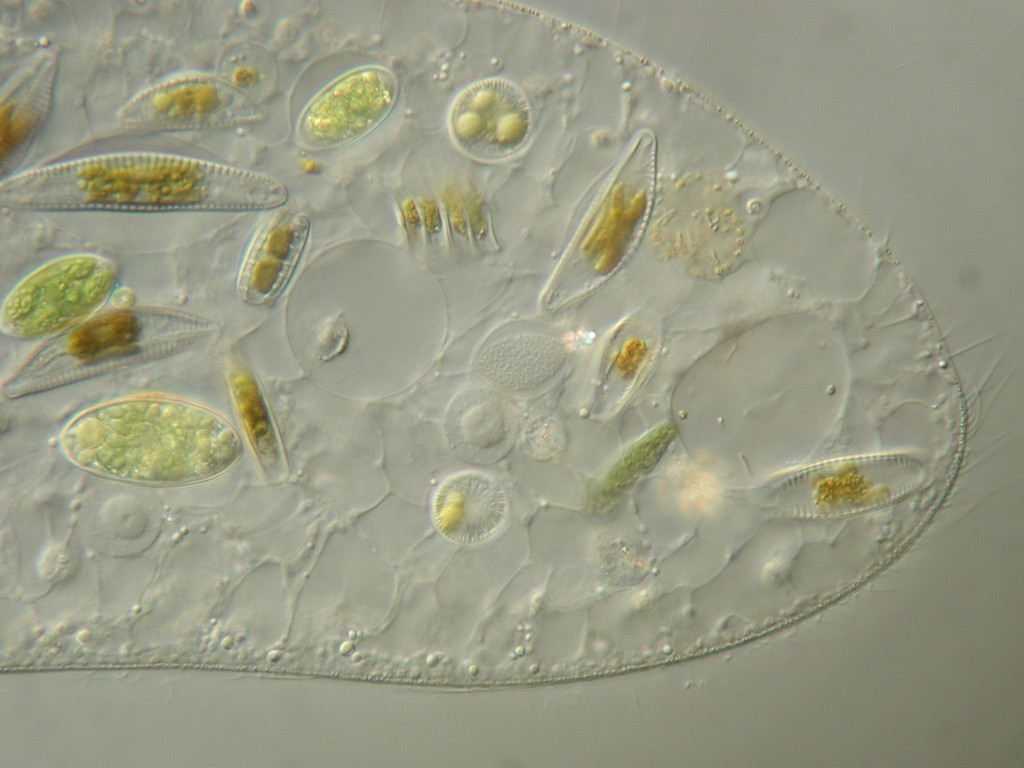
- Loxodes magnum with ingested algae.
Co-occurrence networks in aquatic food webs: ciliates as models
Aquatic food webs have always fascinated freshwater ecologists and relationships among the involved key players are extraordinary complex networks. Elucidating the interactions among organisms and the implications of these interactions for ecosystem function(ing) are still a major challenge in freshwater ecology.
Aquatic food webs consist of microscopic organisms, including viruses, bacteria, protists and small metazoans that co-occur in seasonal cycles. Elucidating the functional traits of individual planktonic organisms, their food preferences and their potential predators require a close monitoring of their dynamics in a habitat. The major goal of this project is to identify factors that trigger the variability in ciliate assemblages in time (seasonality) and space (spatial distribution) in two lakes.
We base our observations upon ciliates because their morphotypes are relatively easy to identify, they have short generation times making them ideal experimental models, and current research on taxonomic marker genes has progressed far compared to other heterotrophic protists. Our international cooperation (D-A-CH) includes three experts on ciliate taxonomy, molecular ciliate ecology, aquatic ecology and computational biology. Through this integrative approach by combining classical morphological analyses with next generation sequencing, a much deeper look into microbial communities will be possible.
Therefore, the proposed project follows a stepwise design: (i) In the first year of the project, we will investigate the dynamics of ciliate assemblages in two lakes while recording a wealth of environmental contextual data. (ii) Statistical network analyses (graph theory) based on the obtained data will then suggest significant factors that may be responsible for the observed dynamic-patterns of specific ciliate species. (iii) The proposed hypotheses will then be verified or rejected in experimental approaches. After the three years of this project, we expect autecological information on key ciliate species and provide new tools to facilitate the analyses of species-specific interactions in microbial food webs.
This international trilateral project is funded by the FWF (lead agency; I 2238-B25), SNF and DFG. The principal investigators are B. Sonntag (FWF), T. Posch (SNF, Uni Zürich), T. Stoeck (DFG, Uni Kaiserslautern). Duration: September 2015 – August 2020.

